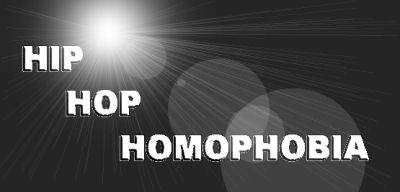I hate George W. Bush just as much as the next Green-leaning liberal. But one thing he got right was his notion of “the soft bigotry of low expectations.” What Bush was referring to, in the context of eduction reform, is that, by padding the curriculum and standards for impoverished, largely Black and Latino students, we are operating under the assumption that these students are incapable of rising to the same level as their middle class, largely White counterparts. Going easy on someone, or some group of people, might make everyone feel good about themselves, but it inescapably demeans the group or individual in question by assuming them to be less capable.
A few weeks ago, I published an editorial, “Homophobia and Indie Rap,” in which I sought to break down the dichotomy between “progressive” indie rap and “backwards” mainstream rap. More specifically, I discussed how homophobia is so prevalent in hip-hop that even so called conscious/underground rappers habitually employ explicit anti-gay language and viewpoints in their music. I discussed critical apathy to homophobia and bigotry in hip-hop, but I never tried to account for why critics, and society at large, are so willing to turn a blind eye to rap’s prejudices, generally, and homophobia, specifically.
I will admit that, as a critic, I struggle with what to do when faced with an otherwise solid album that displays homophobia . I love El-P’s “Fantastic Damage,” for example, so it would painful for me to slam it or leave it off a Best Album’s of the Decade list because El-P calls his opponents “faggots” on “Delorean.”
The pain we feel in bashing albums dear to us largely explains why we are so willing to hold rap to such low moral standards. We don’t want to disparage something we love. One RapReviews reader wrote to me in response to my last editorial, candidly explaining his own perceived apathy to gay bashing in rap: “I let it slide because it’s my heroes who end up perpetuating that aspect of the culture, and it hurts inside, but I don’t recognize the hurt at a conscious level because I don’t want to believe that my heroes are wrong.” This loyalty-despite -bigotry stems from the same urge that inspires many to take offense when critical historians criticize Thomas Jefferson as an adulterous slave holder It is easier to let ourselves become desensitized to hip-hop’s most pernicious vices than constantly struggle over whether we are morally compelled to rewrite elements our most essential narratives.
This explanation, however, is slightly incomplete. It does not entirely address why society is willing to tolerate more bigotry in hip-hop than in other genres of music. In part, this double standard can be explained by the pervasiveness of gay-bashing in rap as opposed to, say, in pop music. If we dismissed every rapper that gay-bashed, we would be forced to throw out a ton of rappers. If we boycotted homophobic pop music, a small percentage of artists would be affected. Our apathy, in this sense, is similar to the long-standing blind eye society turned towards steroid use in sports. We fear that holding our heroes accountable leads to too many of their downfalls.
But this explanation does not seem to address the extent of our apathy towards bigotry in rap. As stated in my former editorial, Pitchfork.com praised Drake’s “progressivness” towards women as “contagious” because he inspired T.I. to choose independent women, which he clearly viewed as the exception to the rule, over “these superficial gold-digging bitches in here.” In what world is someone being progressive by referring to women as “gold-digging bitches?”
Our naturilization of bigotry, and especially homophobia, in hip-hop seems to stem at least in part from something more fundamental than our idolizing of rappers. At the very least, there is a cultural assumption that hip-hop is inherently more thuggish and amoral than other genres of music and thus does not warrant the same ethical scrutiny.
Unfortunately, though, a large part of me is afraid that apathy amongst critics and the general public starts not with prejudice towards rap, but with prejudice towards black people and black culture generally. Implicit in our responses (or lack-thereof) towards gay-bashing in hip-hop is the idea that black people (and especially black men) are fundamentally less tolerant, compassionate, and forward-thinking than others. And because society generally perceives hip-hop as grounding itself in black (male) culture, the assumption goes, it only makes sense that homophobia is endemic to hip-hop. It is telling, for example, that Eminem’s homophobia provoked a national outcry (though, concededly, a more nuanced critical one), while the homophobia of black rappers tends to receive little more attention than a rant on a message-board.
Indeed, if as critics and as a society, we accept homophobia as part and parcel to rap, we, knowingly or not, assume that rap and the culture that anchors it are less capable of progressive thinking than other American subcultures. This supposed relativism isn’t tolerance, it’s complicity – complicity with both rap’s bigotry and the soft bigotry that allows society to accept it.

